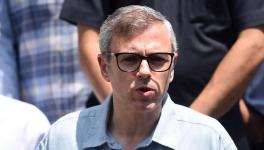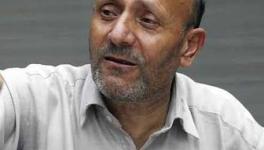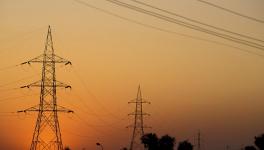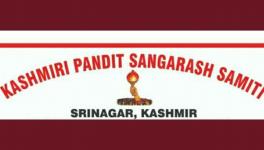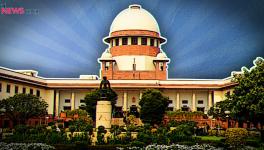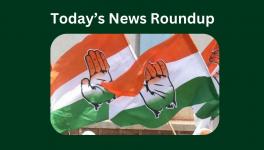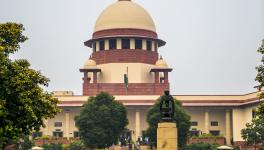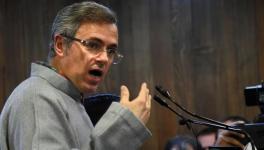2020: A Year of Blowback for Kashmir’s Mainstream Parties
File Photo.
Srinagar: A day before the District Development Council (DDC) election results were to be announced in Jammu and Kashmir, several policemen barged inside the residence of senior People’s Democratic Party (PDP) leader Naeem Akhtar on the night of December 21. He was not given much time, just asked to pack up and then removed by the men in uniform.
The PDP leader, according to his family, had just finished dinner and was preparing to go to sleep. The police came at about 9:30 pm and within 20 minutes, he was taken away.
Akhtar has since been detained inside a building in government quarters for residences of MLAs. This is the second time since last year that he has been kept here. Earlier, he was detained along with more than 30 other politicians as the central government abrogated Article 370 and bifurcated J&K into two union territories.
This time, along with Naeem, the authorities in the region have detained two other PDP leaders-- Sartaj Madni and Mansoor Hussain, and National Conference (NC) leaders Showkar Ganai and Advocate Shabir Ahmed Kullay. The two parties are part of the People’s Alliance for Gupkar Declaration (PAGD) that won majority of seats in the recently held DDC polls.
Another PDP leader Waheed ur Rahman Para was arrested a day after he filed his nominations in the DDC elections on November 25. He was accused by the National Investigation Agency (NIA) for aiding militancy in a case wherein former decorated J&K Deputy Superintendent of Police Davinder Singh had been arrested.
For all the regional political parties including the NC and PDP, the year 2020 has been full of political upheavals and bullying. A shadow of fear and uncertainty has been cast over their victory in the DDC polls. The party leaders decry “lawlessness” and “coercion” with the ruling Bharatiya Janata Party steering the same against the local mainstream political parties. The year 2020 has also been detrimental for regional parties as many of the politicians have been called for questioning in older cases of corruption while many others have been booked in new cases.
The regional political parties, their leaders and the party workers are walking a slippery slope since August 5 last year when almost all of them were detained. They were later released in a phased manner and many of the senior leaders were let off after being detained for months. PDP’s Mehbooba Mufti was released in October this year after spending time in confinement, first at a government accommodation and then at her residence, for over a year.
On Tuesday, Mufti addressed her party workers for the first time since August last year at her party office in Lal Chowk. “In the past two months, my workers were intimidated and threatened. Even the DDC candidates who won are being blackmailed to join other parties,” she said.
Mufti alleged that the ruling BJP has been using law enforcement agencies like the NIA, Enforcement Directorate and Central Bureau of Investigation against the regional parties to “coerce” them into submission.
Mufti, former chief minister in the PDP-BJP government in erstwhile J&K, said that the PDP will continue to advocate for the restoration of “special status” of the region. Her remarks were also echoed by National Conference vice-president Omar Abdullah who said, in a presser earlier last week, that “the verdict of DDC polls was loud and clear that people voted for PAGD and the message is August 5 decision wasn’t acceptable to majority of the people of J&K.”
“The democracy is being discredited by the administration, which is using police to force the winning candidates to switch sides to Apni Party,” Omar added.
A part of the ire expressed by the PAGD parties is also directed towards Altaf Bukhari, a businessman turned politician, and his Apni Party, which was formed in March this year. The party, often referred to as the “king’s party” or the “BJP’s B-Team” in Kashmir, comprise rebel PDP leaders, who claim that the local leaders should move beyond Article 370 and accept the changes in what they see as a pragmatic approach to new political realities of the region. The Apni Party leaders, however, refute the claims of being the “B-Team” of BJP.
Since the abrogation of Article 370, political observers say a political vaccum was felt for most of the year in the region, which remained bereft of any major political activity except for the BJP. The saffron party held multiple political rallies, and even campaigned with full enthusiasm for the DDC polls.
But now, Ellora Puri, Assistant Professor in the Department of Political Science at the University of Jammu, says that the “political vacuum” that everybody was feeling has been addressed by the DDC elections.
“The mainstream parties deciding to join the foray was an interesting and encouraging sign given how Jammu and Kashmir was deprived of any political activity for more than a year,” Puri told NewsClick.
She, however, said it was not as if the vacuum had been completely filled. “The good thing about DDC elections has been that people have been able to talk to each other after the breakdown of communication that had happened post-August 5 lockdown and the void it had created,” she added.
Executive editor of the Kashmir Times newspaper, Anuradha Bhasin says that the politics of Jammu and Kashmir has been “impacted immensely” in the last one year and a half, and throughout this time, there was an “attempt to completely invisibilise the political discourse or the politicians.”
“We haven’t been able to define the political narrative. There really is no political discourse. The old political structures have completely fallen down. There is no Assembly in place; there is now District Development Councils which are not even mandated by the Constitution,” she told NewsClick.
Both the observers claim that there is an increasing division between communities in the union territory. “There has been old tradition of Jammu vs Kashmir discourse which recently has become more jarringly Hindu vs Muslim discourse. And that is something that continues to appeal to the sensibilities of the Hindu right-wing constituency,” Bhasin said.
Even as the PDP held a low-key convention at their party headquarters earlier this week to exhibit their “resurgence,” the party insiders see detention of Naeem, Para, Madni and Mansoor as a “well-thought strategy” to disempower the party. “These four leaders are the backbone of the party; it’s like targeting the main thinkers as well as the workhorses of the party,” a party source told NewsClick.
The DDC election results, however, have rekindled the National Conference. The results at the end of the year have shown that the party is still rooted in ground as they were able to manage wins not just in Kashmir valley but also in parts of Jammu, which is seen as a BJP bastion.
There is nevertheless hostility amongst the people against both the PDP and the NC, which are seen by many as ‘part of the problem.’ In year 2020, a tragedy has unfolded for the regional mainstream parties that have been at the forefront of upholding the Indian flag in the region otherwise mired in contrarian political aspirations, separatism and war.
For residents of J&K, most of the fears tamed for past several decades are coming true at an unexpected speed. From natural resources to personal properties, everything seems to them to be prone to exploitation and loot. That too in the name of official policies. Thus, the political onslaught takes a backseat, both in individual priorities and public memory.
Get the latest reports & analysis with people's perspective on Protests, movements & deep analytical videos, discussions of the current affairs in your Telegram app. Subscribe to NewsClick's Telegram channel & get Real-Time updates on stories, as they get published on our website.










